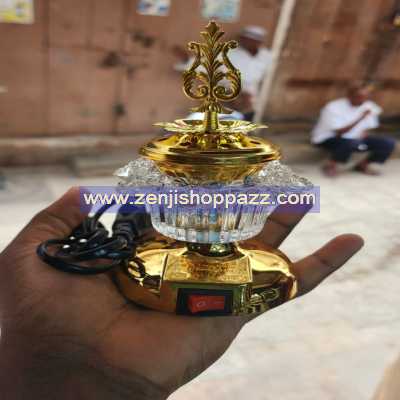History Notes Form Two
Maelezo
Chanzo: Zenjishoppazz
Tarehe Iliyotolewa: 2023-01-14

INTERACTIONS AMONG THE PEOPLE OF AFRICA
Interaction was a state in which people from one community got into contact with one another.
The contacts among African people resulted from their various struggles to meet their daily requirements. Before colonialism, African communities had social and economic interactions.
A) SOCIAL INTERACTION:
Social interaction took place through migration, religion, war, music, medicine, and marriage.
- MIGRATION
East Africa belongs to four main language groups namely the Khoisan, the Cushites, the Nilotes and the Bantu.
Historical evidence show that the earliest inhabitants of East Africa were of Khoisan origin. Their speech is described as had “click” sound. It was like the language of present day KhoiKhoi and San of South Africa.
They were nomadic hunters and gatherers. These early large groups interacted with the larger Cushites, Bantu and the Nilotes communities that began settling in East Africa from the first century A.D.
Some Bantu communities of East Africa included Nyamwezi, Sukuma, Chagga and Pare of Tanzania, kikuyu, Kamba, Luhya of Kenya and Baganda, Basoga and Banyoro of Uganda.
The Impact of Migration
- The Bantu introduced iron technology to east Africa. This brought about major changes in to east Africa.
- They were increased inter-communal conflict in the continent. For example, the Bantu not only fought with the Maasai in rift valley but also with the Oromo along the east African coast and the Luo near Lake Victoria.
- Migration led to exchange of cultural practices. Example the Nilotes and Bantu borrowed the practice of circumcision and age set organization from the Cushites.
- Skills and knowledge were exchanged between different communities. For instance, Bantu were famers, they influenced other groups such as the Kwavi, Maasai and Luo to undertake cultivation.
- Displacement of some communities. For example, the inhabitants of east Africa were forced to move from their original settlements by the stronger groups.
- Intermarriage between different groups. For instance, the Maasai intermarriage with the Chaga, Luo and Kikuyu.
- Intensified trade in the region. Example, the Maasai exchanged their cattle for agricultural production and iron implement from Bantu communities.
- Increasing of population. By 1800, for example, the Ngindo and Ndendeule in southern Tanzania had been joined by the Makonde and other groups from Mozambique.
- RELIGION
Religion played a crucial role in all African societies. Religious beliefs were taken seriously and affected every phase of life.
There was a variety of religious activities in pre-colonial Africa. These included burial rites purifications, rituals naming of ceremonies and prayers to bless soldiers before they went to war.
Religious activities took place at different levels such as family level, clan level and community level e.g. The Bushmen of Congo held prayers before going to hunt as they believed that God was the source of all food.
Among the Asante people of West Africa, the king of Asante (Asantehene) based his right to office on the possession of the Royal or Golden stool, Asantehene was regarded as the chief priest.
THE IMPACT OF RELIGION
- Religion served to build bonds between members of the society. This is through participation in various religion ceremony like praying, offering sacrifices, and eating together.
- Religion laws helped to maintain order in the society. These laws outlined the expected behavior in the community and what punishment should be given to those who broke the law.
- To promote moral values in the society. Example, the Xhosa of south Africa practiced Ubuntu. This system called for those who were wealthier to give the needy.
- Religion contributed to the rise of very powerful people in society. Among the Asante, possession of the golden stool made a person not only the high priest, but also the supreme ruler.
- Religion offered solution to their problems and answers to difficult questions. Example when draught occur, it was said the goods or ancestors had been displeased so they offer sacrifice.
- Religion sometimes caused conflict. For example, people who continued to practiced tradition religion fought with those who adopted to Islam in western Sudan.
WARS
African communities engaged in war from time to time; they fought with various reasons such as to
- increase the number of the herds of livestock.
- to get fertile land for agriculture purposes
- expansion their kingdom e.g. Buganda conquered Buddu, Karagwe and Busoga to expand their kingdom by 1839.
- To get trade commodities such as slaves. Example trans-Sahara trade of North and west Africa, and slave trade in east Africa.
- Avenge a previous attack or defeat.
- Test their military strength. Example Ngoni often attacked other community in order to test their war skills.
- Get passage during migration or trade expedition. Example chief Mkwawa of Hehe fought with Gogo because the block his access to important caravan.
Impact of war
- The strong communities expanded their territories and increased their wealth.
- Weaker communities lost their sovereignty, land, livestock and civilians when they were defeated at war.
- Wars led to many deaths and destruction of properties.
- Wars caused insecurity in the area.
- It led to enmity that went on even to future generation.
MUSIC AND DANCES
African music and dances brought people together; communities’ rites and ceremonies were accompanied by songs and dances.
Every African society developed songs for work, Labourers sang while clearing fields, sowing and harvesting.
goods example of dances were Mdundiko among the Zaramo and Sindimba of Makonde. The Yomba of West Africa performed Orik music where by other songs praised or condemned certain characteristics including leadership and relation with neighbours.
Impact of music and dance
- Songs were used to pass on traditions of the community from one generation to another. Example the song sung during initiation ceremony taught the initiates the responsibility of adult.
- Music made work less tedious. For example, had songs that they sang as worked in their farm or pounded grains.
- Songs and dances enhance unity in the community. This is because it creates bounds in the community.
- Songs teach good moral in the community. Example for praising good deeds and condemned wrong doing.
- War songs instilled courage and hope, especially in warriors and were also used to scare the enemy.
- Music provided entertainment for the people during ceremonies and after hard work
MEDICINE
African’s had medicine men and women who played important role both spiritually and medically. Those who practice medicine interacted with many members of the society as patient visited some of the well-known medicine men and women.
Some medicine men and women were also political advisors and leaders example Kinjekitile Ngwale of Southern Tanzania most of the medicine were extracted from plant roots, barks and leaves e.g. The (neem tree) Mwarobaini is mostly used by various medicine in Matebele.
The following are benefit of neem tree.
- The twigs are used to brush teeth.
- The bark treats gum inflation and skin disease.
- Neem leaves are used on boils, chicken pox and warts.
- The tree sap helps to cure stomach problems.
- A paste made from neem roots kills roundworms.
- The neem fruits are effective in treating urinary infections and intestinal worms.
The impact of medicine
- Medicine enable people in the society to live longer and healthier by curing and controlling diseases.
- Medicine people sometimes provided inspiration for the community. For example, Kinjengetile alleged medicine against bullets gave warriors, from many societies from southern Tanzania.
- Communities with powerful medicine men gained great respect from other groups. Example the Hehe chiefs were greatly feared because they were said to have potent war medicine.
Ukitaka topiki yoyote ya form two utalipia kiasi cha Tsh 1500 na kwa notes zote ni Tsh 3500 tu utazipata ndani ya masaa 24. Kwa maelezo zaidi unaweza kuwasiliana nasi Zenjishoppazz
Zinazofanana
Bidhaa Mbalimbali
Zenye Promotion
Bidhaa Nyenginezo
Tembelea pia




 Download our app on Google Play
Download our app on Google Play








